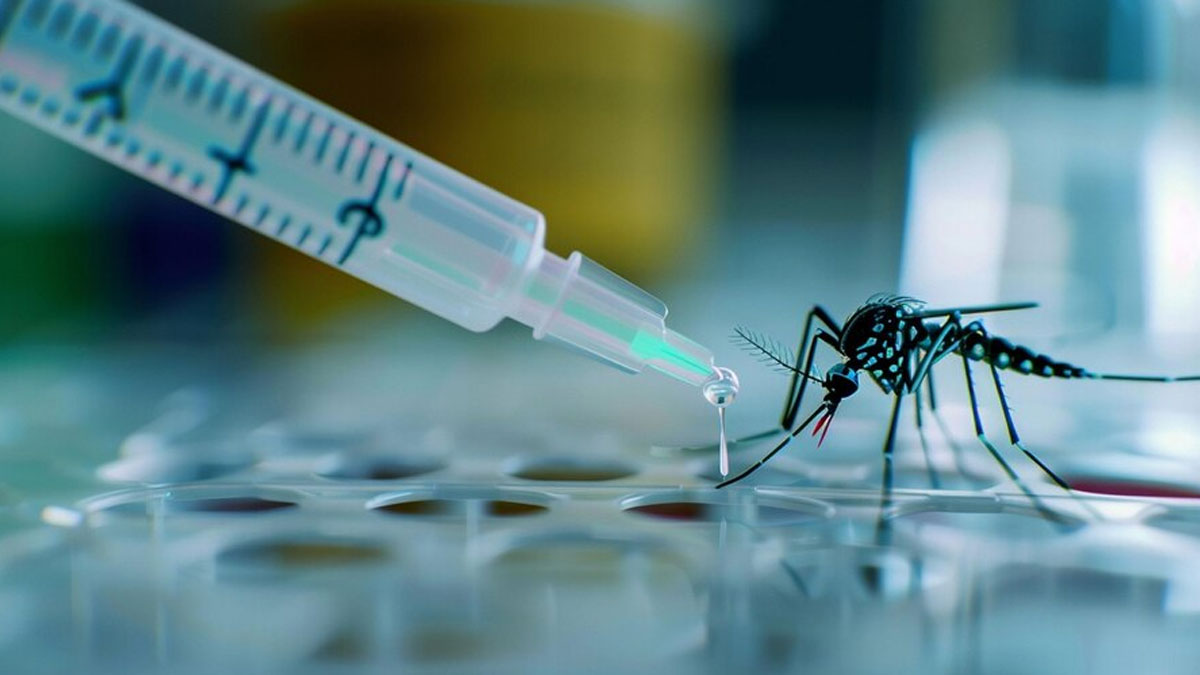
The World Health Organisation (WHO) granted prequalification to a new dengue vaccine, on May 10, 2024. The vaccine is labelled TAK-003 and has been developed by Takeda. This is the second dengue vaccine to receive this recognition from WHO. It's a live-attenuated vaccine comprising weakened versions of the four serotypes of the dengue virus.
Table of Content:-
This move has been welcomed by the medical community as dengue cases have been on the rise, and so far, only two dengue vaccines have been prequalified by WHO. Dengue, a mosquito-borne disease, can lead to severe complications, including potentially fatal severe dengue, said WHO. Globally, there are estimated to be over 100-400 million cases annually, mainly in Asia, Africa, and the Americas.

What Is The Meaning Of Prequalification?
Prequalification by the WHO means that a vaccine, medicine, or other health product has been assessed and approved by the WHO for quality, safety, and efficacy. This process involves a rigorous evaluation to ensure that the product meets international standards and can be confidently recommended for use in public health programmes.
For a vaccine like TAK-003, prequalification indicates that it has undergone thorough review and testing, demonstrating that it is effective in preventing disease and safe for use in the target population. This designation helps countries and health organisations make informed decisions about incorporating the vaccine into their immunisation programmes, ensuring that they have access to reliable and effective medical interventions.
TAK-003 Dengue Vaccine Indications
TAK-003, a live-attenuated vaccine, is designed to combat all four dengue virus serotypes. According to an overview published by Scitable, dengue serotypes refer to the distinct variations of the dengue virus, of which there are four known types: DENV-1, DENV-2, DENV-3, and DENV-4. Each serotype is genetically different enough that immunity to one serotype does not provide complete protection against the others.
The development of TAK-003 is based on a DENV-2 backbone mixed with recombinant strains expressing surface proteins for DENV-1, DENV-3, and DENV-4, as outlined in a 2023 study published in the Journal of Travel Medicine.
Here are the indications of TAK-003 as recommended by WHO:
- For children aged 6–16 years
- Living in areas with high dengue prevalence and transmission rates
- Requires a two-dose schedule with a three-month gap between doses
While approved in Europe for everyone over 4 years without an upper age limit, specific age indications depend on national recommendations.

TAK-003 Seen As A Breakthrough
Currently, TAK-003 is seen as an advancement over Sanofi's Dengvaxia. As per the Centres for Disease Control and Prevention, Dengvaxia is currently the only available dengue vaccine in the United States. It is advised for children between the ages of 9 and 16 who have had a confirmed previous dengue virus infection and reside in regions where dengue is prevalent.
You may be wondering why dengue vaccines are not commonly available across the world despite dengue being an extremely prevalent infectious disease. Talking to the team of Onlymyhealth Dr J Anish Anand, Consultant Internal Medicine, Apollo Hospitals, Jubilee Hills, explained why. “A distinct feature of the dengue virus is that it has four serotypes, each of which can cause dengue fever, and infection with one does not guarantee immunity against the other three. That has been the challenge in developing an effective vaccine against dengue.”
Another issue is that “The immune response to dengue virus is not fully understood yet, which makes it difficult to develop a vaccine that can mimic the body’s natural response against dengue,” said Dr Anand.
The WHO’s prequalification of the TAK-003 dengue vaccine represents a significant advancement in the fight against dengue, a disease that affects millions globally. The approval of TAK-003 has been welcomed by the medical community, especially as dengue cases continue to rise. This development addresses the unique challenges posed by the four distinct dengue serotypes and the incomplete understanding of the immune response to dengue. The introduction of TAK-003 enhances the global arsenal against dengue, promising significant public health benefits and offering new hope for controlling and preventing this pervasive disease.
Also watch this video
How we keep this article up to date:
We work with experts and keep a close eye on the latest in health and wellness. Whenever there is a new research or helpful information, we update our articles with accurate and useful advice.
Current Version